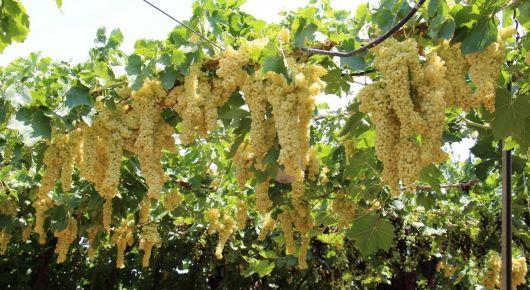FAO, Armenia collaborate on the prevention of grape phylloxera pests

The International Plant Protection Convention Secretariat, housed at FAO headquarters in Rome, in collaboration with the Government of Armenia, is holding a workshop on 24 to 26 July, as part of an FAO project on the production of grape phylloxera-resistant certified planting material. Two days in the capital will be followed by a field trip to a grape collection orchard and mother vineyard in the Armavir region.
The meeting will help Armenian national plant protection authorities build their capacities to protect the country from the impact of quarantine pests, especially in the context of grape phylloxera, an aphid originally from North America that was accidentally introduced into Europe in the mid-1800s. It feeds on the roots and leaves of susceptible grapevines. Armenia requested assistance from FAO after the pest’s introduction in the Ararat Valley in recent years.
“Tackling the problem presented by the introduction of phylloxera is a complex issue that requires the effective collaboration of the Armenian government, different sectors and partners, including grape producers, processors and research institutions,'' said Avetik Nersisyan, IPPC senior agricultural officer.
Nersisyan also highlighted the importance of ensuring the sustainability of the FAO project through the state budget.
Among the workshop participants are representatives from the Food Safety Inspectorate of the Republic of Armenia, the Ministry of Economy, and from relevant development agencies, civil society organizations and academic institutions.
FAO launched a project in 2017 to support the Government of Armenia in the sustainable development of the grape industry through technical assistance in the production of phylloxera-resistant certified grape-planting materials.
The workshop aims to provide an opportunity to review the achievements of this project and to facilitate a discussion on monitoring the spread of phylloxera and other pests in the country. It should serve as a good platform for raising awareness among the government and other partners on the importance of the problem, helping the country take appropriate actions for planting new vineyards or replacing the phylloxera-affected fields with resistant planting materials.
Another aim of the workshop is to help participants better engage with the global network of governmental organizations that are collaborating under the International Plant Protection Convention (IPPC) framework to protect the world’s plant resources from pests.
The International Plant Protection Convention is an international treaty overseen by FAO that aims to secure coordinated, effective action to prevent and control the introduction and spread of pests of plants and plant products. Armenia has been a signatory to the convention since 2006.
25 July 2019, Yerevan, Armenia
